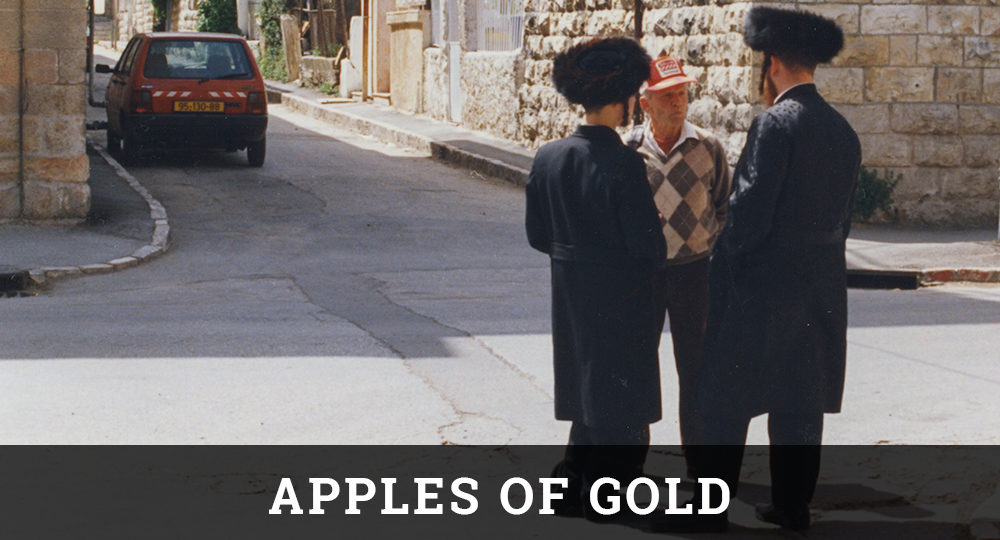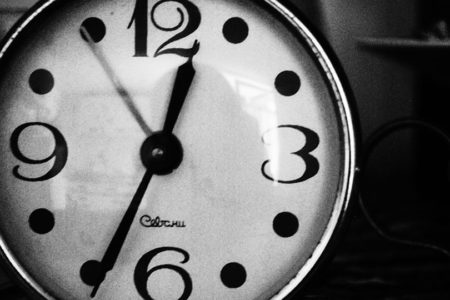Zvi Aug/Sep 2000
The days are fast approaching when Jewish people all over the world will come to the synagogues for the holy day of Yom Kippur. Before this great Day of Atonement, many Orthodox people cluster around their rabbis and are afraid even to speak without the permission of these men whom they believe are so righteous and holy.
During this time, many people come to the selichot services, where they recite the penitential prayers asking for forgiveness. So I went to the synagogue to speak to these people. This time I brought with me an article from a well-known newspaper where it was written, in black and white, that for 520 shekels, a certain rabbi would erase all your sins for the past fifty years. The offer was only good through Thursday. So you could sin through Thursday and then pay the rabbi and receive forgiveness.
I asked a rabbi in the presence of his students, “So, what do you think about this?” All the Hasidic (ultra-Orthodox) pupils were looking at the article. Then they asked the rabbi, “Is this according to the Law, or is this rabbi a lawbreaker?”
“First,” he said, “tell me who the rabbi is.”
By now all the students were standing around me, and I had a good opportunity to read to them from Isaiah 52:3 about the One who forgives our sins without taking money. He forgives us because of His love for us all. It is the Lord who said He will blot out our transgressions and remember our sins no more (Isa. 43:25). “None of those rabbis,” I said, “have a right to put such a crazy report in the newspaper and make so many spiritually blind people even more blind and bring them to such great confusion.”
“How can you say that our rabbis do not teach truth?” they asked.
I told them their rabbis come like the false prophets spoken of by the prophet Jeremiah. “They are not better than you,” I said. “In fact, they are much worse, because they will bring you to destruction if you listen to such false instruction. I come here to warn you. As it is written in Jeremiah, “I have heard what the prophets said, who prophesy lies in my name, . . . Yea, they are prophets of the deceit of their own heart, Who think to cause my people to forget my name” (23:25–27).
“You are not one of us,” they said.
“I do not even want to be one of you,” I answered, “because you worship false teachers and not God. Do you pray every day?” I asked.
All of them answered yes. I told them it is written in Deuteronomy that we are to fear the Lord and serve Him only. “So open your eyes and look whom you are serving. You are superstitious and spend most of your lives reading the fictitious stories of rabbis. How many of you have read Isaiah chapter 53? Probably not one of you!”
Then I slowly approached an older man who was busy praying. I asked him, “Do you pray this way every day?”
“No,” he said . “This is the only day in the year—on the day of selichot”
“And what of the other months of the year? Are you free to sin, then you wait for this day of selichot to pray for forgiveness?”
When I spoke with this man, other ears were listening also. I was waiting for this. So another man said, “Are you so sure that you are so clean that you do not come asking God for forgiveness during these special days of selichot? Have a good look at these people. All of them are tzadikim [righteous ones].”
This time I said that it is written in Ecclesiastes 7:20 that there is not a righteous man on earth who does right and never sins.
“Let us go into the synagogue yard,” he said, “and we will have a nice conversation.”
So we walked outside. He did not come by himself but brought eight others just as fanatical as he. First they asked me, “Do you think God will forgive our sins in the days of selichot?”
God, I told them, is ready to forgive our sins every day if we will come to Him with all our hearts, our souls, and our strength, as it is written in Deuteronomy 6:5. Jeremiah 31:34 says, “for I will forgive their iniquity, and I will remember their sin no more.” And this is not written only for the month of Elul and the first day of Tishri.
Then they asked me to which rabbi I belong. I told them I never put my trust in rabbis. As it is written in Psalm 118:8–9, “It is better to trust in the LORD than to put confidence in man. It is better to trust in the LORD than to put confidence in princes.” They began to look at me very oddly. This was what I had been waiting for.
“Tell me,” they asked, “who is your God?”
“How many Gods do we have?” I asked. “As I read to you before from Deuteronomy 6:4, ‘The Lord our God, the Lord is One’ [Masoretic Text]. And in Him I believe.”
“But you do not look like one of us,” they said.
“The difference between us is that I believe in God according to the Bible not like you, who follow the explanations of your rabbis. You are living in uncertainty. But if you will turn back to the Lord as our great King David did, with all his heart, He will forgive you. David did not look on the calendar to see if it was the month of Elul or another month. He opened his heart before God and said, ‘Unto thee, O LORD, do I lift up my soul. O my God, I trust in thee’ [Ps. 25:1-2]. And this was not written in the book of selichot. So, also, do I believe in the God of mercy, this One who suffered for our transgressions.”
So they said, “Tell us how God suffered. Have you the answer?”
“This is written in the Bible,” I said. “I will read it for you. For me it is permitted to read this because I put my trust in God. But for you it is forbidden because you put your trust in man.” (The rabbis forbid the reading of Isaiah 53.) And all eight of them focused their eyes, like a big lantern, on my Bible and read Isaiah 53 and wanted to know how I came to believe in Yeshua Hamashiach.







